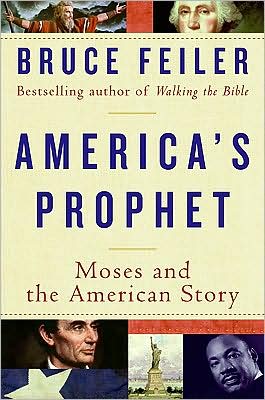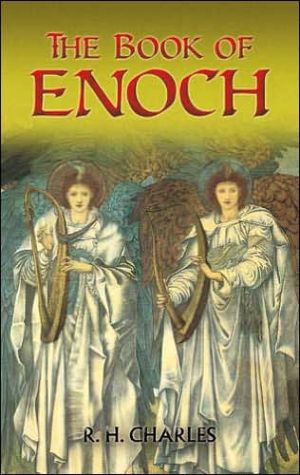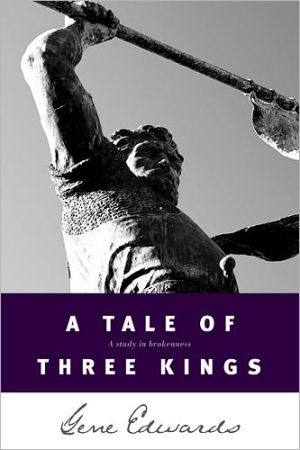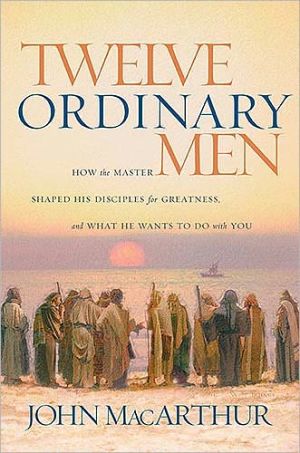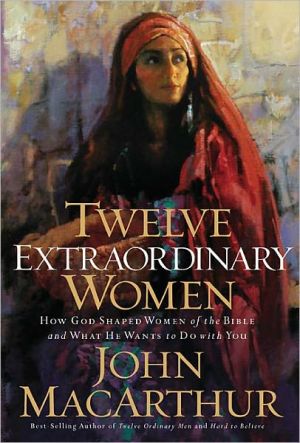America's Prophet: Moses and the American Story
The exodus story is America's story. Moses is our real founding father.\ \ The pilgrims quoted his story. Franklin and Jefferson proposed he appear on the U.S. seal. Washington and Lincoln were called his incarnations. The Statue of Liberty and Superman were molded in his image. Martin Luther King, Jr., invoked him the night before he died. Ronald Reagan and Barack Obama cited him as inspiration. For four hundred years, one figure inspired more Americans than any other. His name is Moses.\...
Search in google:
The exodus story is America's story.Moses is our real founding father.In this groundbreaking book, New York Times bestselling author Bruce Feiler travels through touchstones in American history and traces the biblical prophet's influence from the Mayflower through today. Feiler visits the island where the pilgrims spent their first Sabbath, climbs the bell tower where the Liberty Bell was inscribed with a quote from Moses, retraces the Underground Railroad where "Go Down, Moses" was the national anthem of slaves, and dons the robe Charlton Heston wore in The Ten Commandments.One part adventure story, one part literary detective story, one part exploration of faith in contemporary life, America's Prophet takes readers from Gettysburg to Selma, the Silver Screen to the Oval Office, to understand how Moses shaped the nation's character. America's Prophet is a thrilling original work of history that will forever change how we view America, our faith and our future. Publishers Weekly A bestselling author for his popular explorations of the lands of the Bible, Feiler turns his attention to the biblical figure of Moses in U.S. history. He argues that the story of the life of Moses as told in the book of Exodus has been the dominant metanarrative employed by political and social leaders in shaping America's identity, from the Pilgrims escaping religious persecution to the civil rights movement with its vision of a Promised Land. A journalist rather than a historian, Feiler approaches his subject using the same formula he has employed in previous books: physical walks through historic sites and interviews with experts. Although the book offers snippets of interesting anecdotes, the approach is uncontroversial and the book lacks forward momentum. Feiler is a popularizer, and readers interested in a light and cursory treatment of a theme in U.S. history will enjoy it. Readers wanting a more in-depth and critical understanding of the subject may want to look elsewhere. (Oct.)
I Moses! Moses! 1II An Errand into the Wilderness 7III Proclaim Liberty Throughout the Land 35IV A Moses for America 73V Let My People Go 106VI The War Between the Moseses 140VII Mother of Exiles 176VIII The Ten Commandments 208IX I've Seen the Promised Land 241X A Narrative of Hope 275Giving Thanks 311The Books of Moses 315Select Bibliography 325Index 337\\
\ From Barnes & NobleWhether they think of it as coincidental or providential, for many Americans, the story of our country evokes the biblical saga of the Exodus. This deep connection has been felt since the earliest years of Pilgrim settlements. Since then, the story of Moses and the exiled Israelites has been linked to the American epoch by Founding Fathers, presidents, religious leaders, civil rights activists, writers, and filmmakers. In America's Prophet, Bruce Feiler (Walking the Bible; Abraham) brings the message of Moses home to our country. By using those deeply felt parallels, he explores what we see in this ancient patriarch and why we identify so closely with his mission.\ \ \ \ \ Booklist"Fascinating and thought provoking."\ \ \ Simon Winchester"This is one of the most original, intelligent and endlessly fascinating books I have read in years: it should become a set book for anyone wanting to know what truly makes America tick."\ \ \ \ \ Tony Horwitz"With a journalist eye and an adventurers spirit, Bruce Feiler brings his prodigious gifts of biblical analysis to a reconsideration of Moses as the essential prophet of the American Experience. This is an accessible and engaging book of indispensible insight."\ \ \ \ \ Douglas Brinkley"What a smart, original, and deeply intriguing reflection on the role Moses played yes, Moses in U.S. history. America’s Prophet is Bruce Feiler at his innovative best: compelling, sweeping and engaging. Highly recommended!"\ \ \ \ \ New York Times on Dreaming Out Loud“Penetrating and insightful. . . . Bruce Feiler’s Dreaming Out Loud details the ins and outs of Nashville.”\ \ \ \ \ The New Yorker on Under the Big Top“Astunning collective portrait of an ingrown community with its own history, hierarchy, and traditions.”\ \ \ \ \ Booklist (starred review)“Fascinating and thought provoking.”\ \ \ \ \ The New Yorker“Astunning collective portrait of an ingrown community with its own history, hierarchy, and traditions.”\ \ \ \ \ New York Times“Penetrating and insightful. . . . Bruce Feiler’s Dreaming Out Loud details the ins and outs of Nashville.”\ \ \ \ \ Publishers WeeklyA bestselling author for his popular explorations of the lands of the Bible, Feiler turns his attention to the biblical figure of Moses in U.S. history. He argues that the story of the life of Moses as told in the book of Exodus has been the dominant metanarrative employed by political and social leaders in shaping America's identity, from the Pilgrims escaping religious persecution to the civil rights movement with its vision of a Promised Land. A journalist rather than a historian, Feiler approaches his subject using the same formula he has employed in previous books: physical walks through historic sites and interviews with experts. Although the book offers snippets of interesting anecdotes, the approach is uncontroversial and the book lacks forward momentum. Feiler is a popularizer, and readers interested in a light and cursory treatment of a theme in U.S. history will enjoy it. Readers wanting a more in-depth and critical understanding of the subject may want to look elsewhere. (Oct.)\ \ \ \ \ Library JournalMany books that examine the influence of the Bible on American society focus on controversies such as the true meaning of Genesis (Storms over Genesis: Biblical Battleground in America's Wars of Religion by William H. Jennings, Fortress, 2007) or Christmas displays on government property (War on Christmas: How the Liberal Plot To Ban the Sacred Christian Holiday Is Worse Than You Thought by John Gibson, Sentinel, 2005). Others, such as Melanie J. Wright's Moses in America: The Cultural Uses of Biblical Narrative (Oxford Univ., 2003), relate the Bible to aspects of popular culture. Feiler (Walking the Bible) goes in a different direction, starting with the unique thesis of Moses as Founding Father: the story of Moses as the story of America. Part history, part religious study, America's Prophet examines the American cycle of oppression, followed by inspired leadership, and culminating in the sometimes violent journey toward freedom. Feiler posits that from William Bradford and George Washington to Abraham Lincoln and Martin Luther King Jr., the United States has been a nation of many Moseses, reluctant leaders giving voice and vision to those with neither, the very human leaders who ultimately fail in some respects, after many trials, to reach the Promised Land. Feiler gives us the American struggle—from the Pilgrims escaping religious persecution and slaves seeking human dignity to European Jews fleeing anti-Semitism and African Americans demanding equal rights—and in the same straightforward, readable style as his previous works. Yet the book possesses a depth and a gravitas that belie the accessible text, attributable to the numerousauthorities—religious and civic, historians, and others—interviewed for the book. VERDICT Both students of the Bible and of American history will find insight in the connections Feiler makes, and both specialists and lay readers in religious studies will want this.—Michael F. Russo, Louisiana State Univ. Libs., Baton Rouge\ \ \ \ \ Kirkus ReviewsA breezy look at the story of Moses and its role in the making of America. During his studies and travels, writes popular religion commentator Feiler (Where God Was Born: A Journey by Land to the Roots of Religion, 2005, etc.), he stumbled on a "little-known storyline" of American history-the influence of Moses in the making of the nation. The author claims that Moses' imprint can be seen on many major figures, including the Pilgrims, George Washington, Abraham Lincoln, Martin Luther King Jr. and, most recently, Barack Obama, who used the Exodus story throughout his presidential campaign. "One person has inspired more Americans than any other. One man is America's true founding father," writes Feiler in his typically bombastic style. "His name is Moses." In the introduction, the author twists himself into knots-"Could the persistence of his story serve as a reminder of our shared national values? Could he serve as a unifying force in a disunifying time? If Moses could split the Red Sea, could he unsplit America?"-to justify a narrative that settles into a predictable pattern: first-person reporting at a historic landmark, an interview with a historian and fairly standard textbook history. Feiler indulges a few tangents but always dutifully returns to Moses. Like a conspiracy theorist, the author often mistakes coincidence for portent. "Just because some of our ideas correlate with the Revolution doesn't mean there's causality," says one of Feiler's interviewees. Though his subject is discussing the history of the Freemasons, it could easily apply to the author's Moses thesis. However, even though the author stretches his thesis too far, he does provide an interesting greatest-hits digestof American history from the point of view of revolutionaries. A facile retracing of American history on a Mosaic theme-which is not to say Feiler fans won't love it. Author tour to Atlanta, Boston, Chicago, Columbus, Ohio, Detroit, Nashville, New York, Philadelphia, Savannah, Ga., Washington, D.C.\ \
